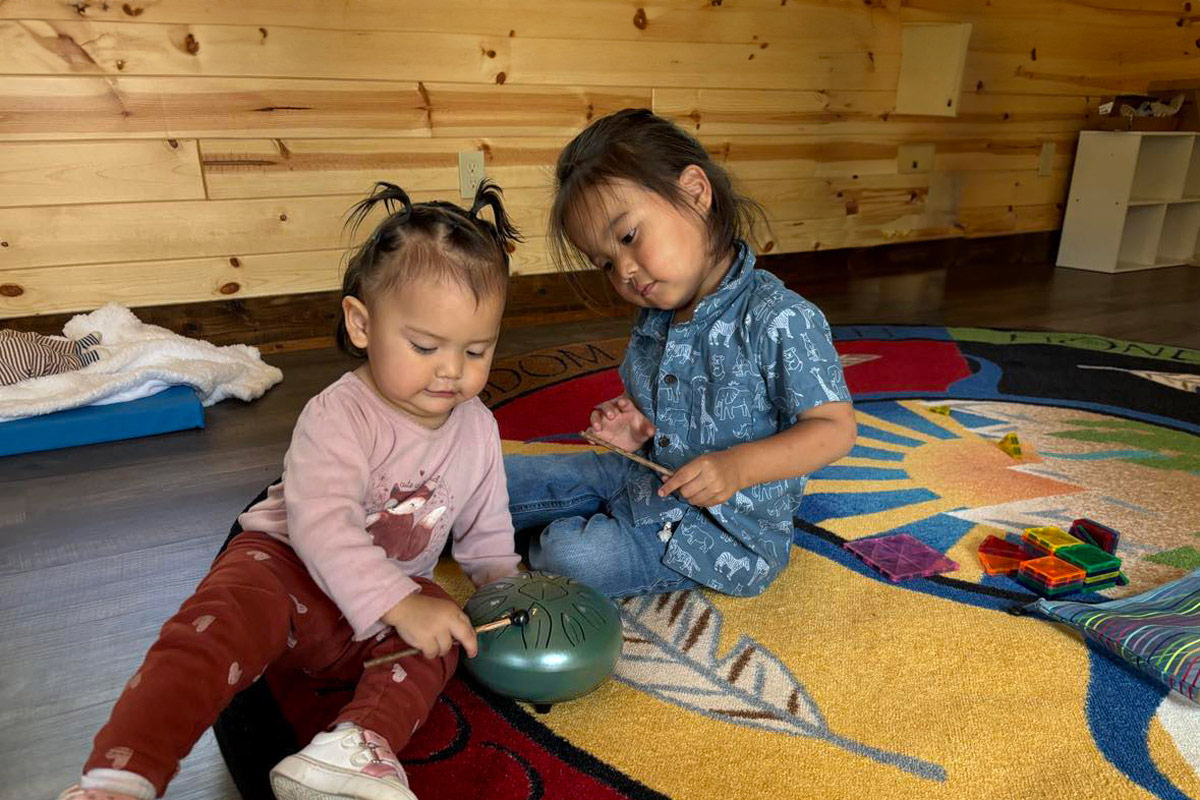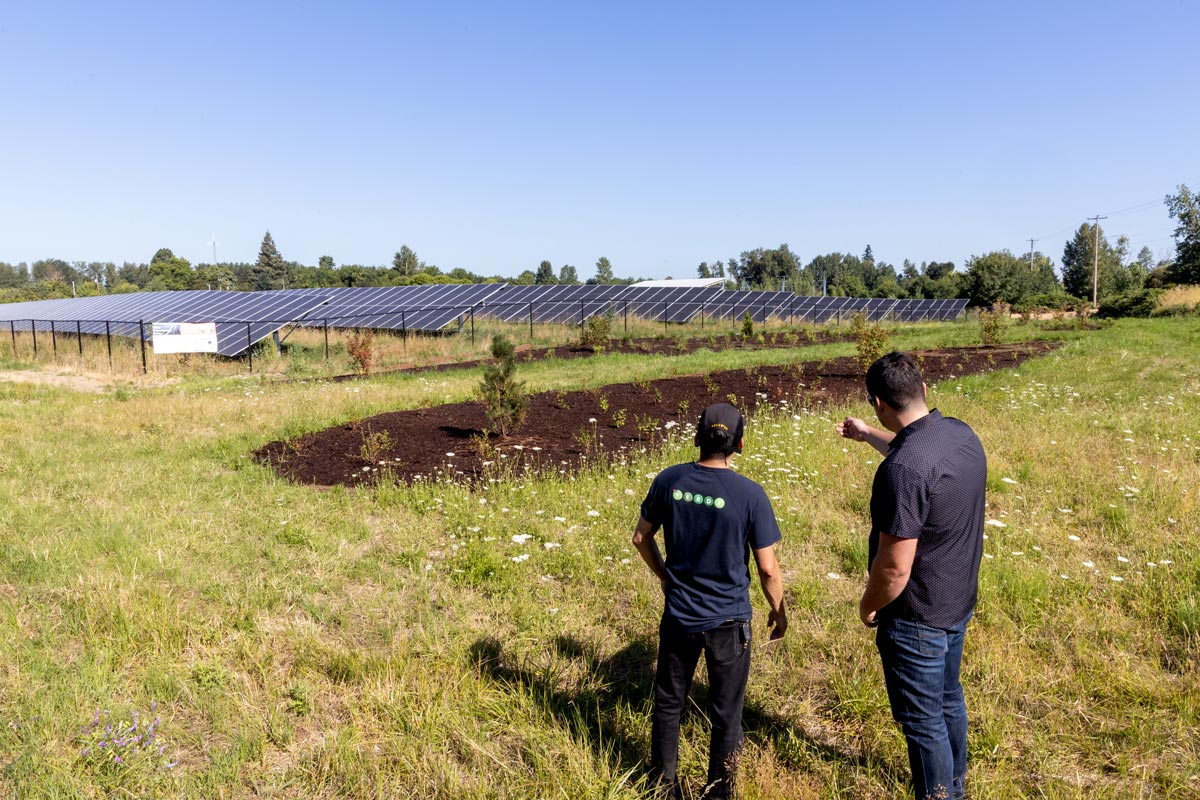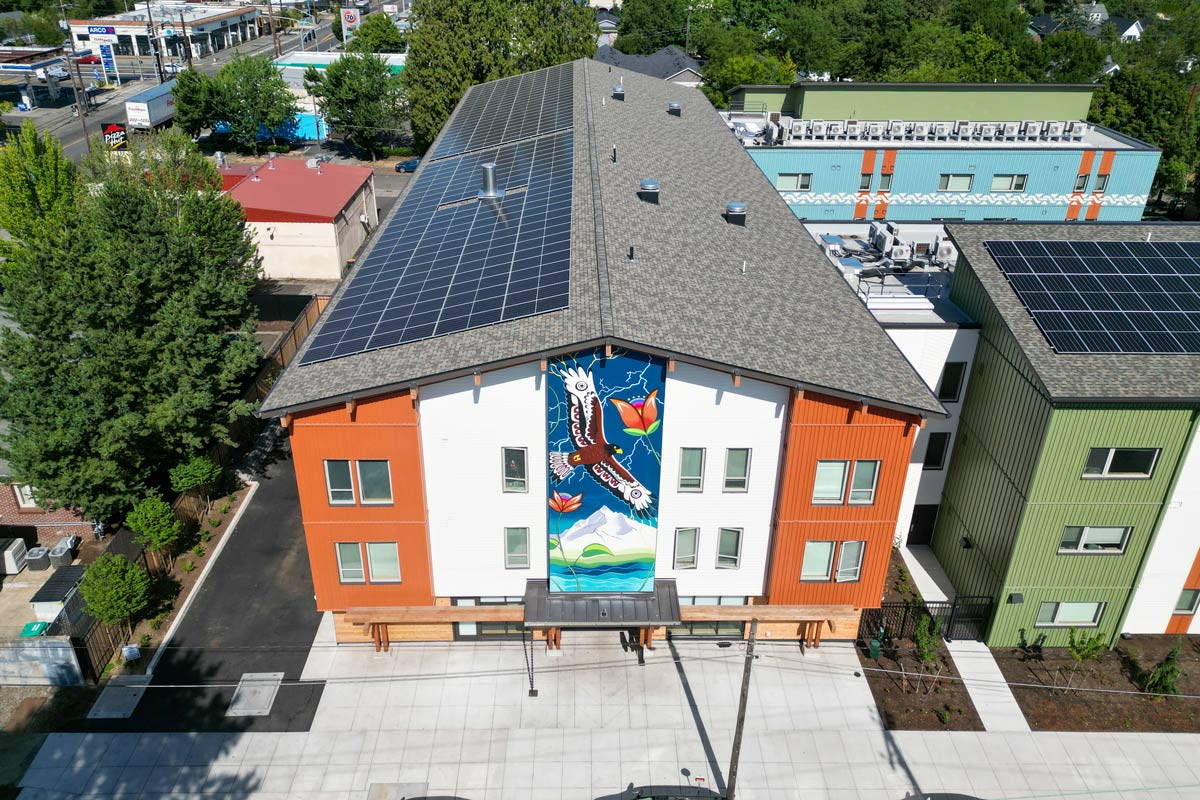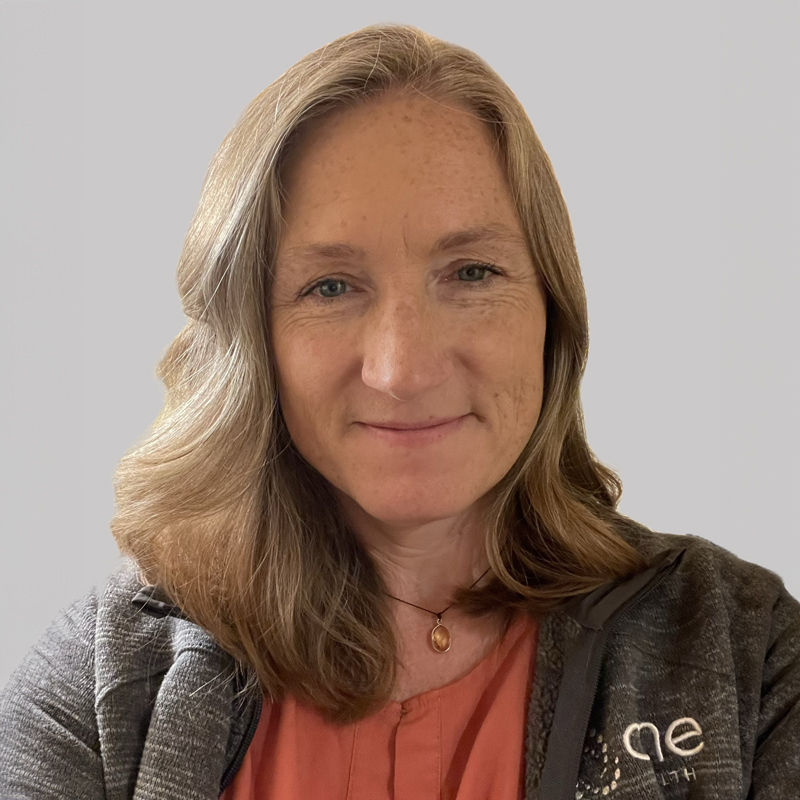
“We try to take a community-wide view, a systems view, of . . . healing. Because people’s health—their wholeness, really—impacts everything they’re connected to.”
Megkian Doyle
Executive Director, Mountain Shadow Association
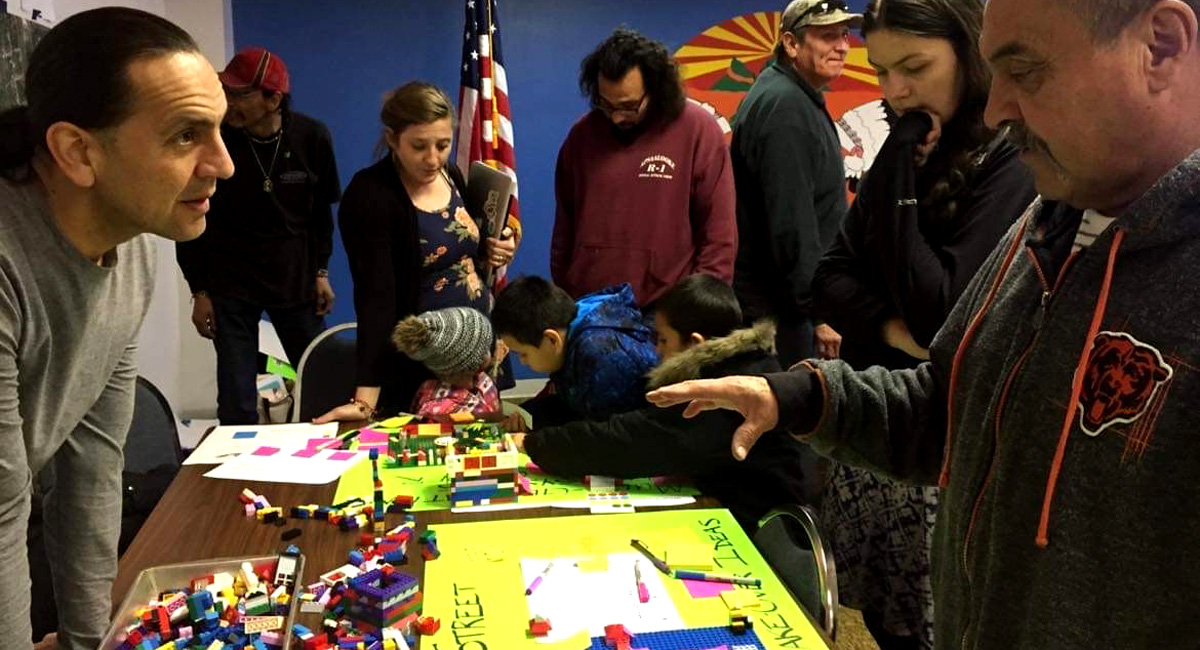
Community discussion about change for Lodge Grass during the family-centered design process in 2018. Photo courtesy of MSA.
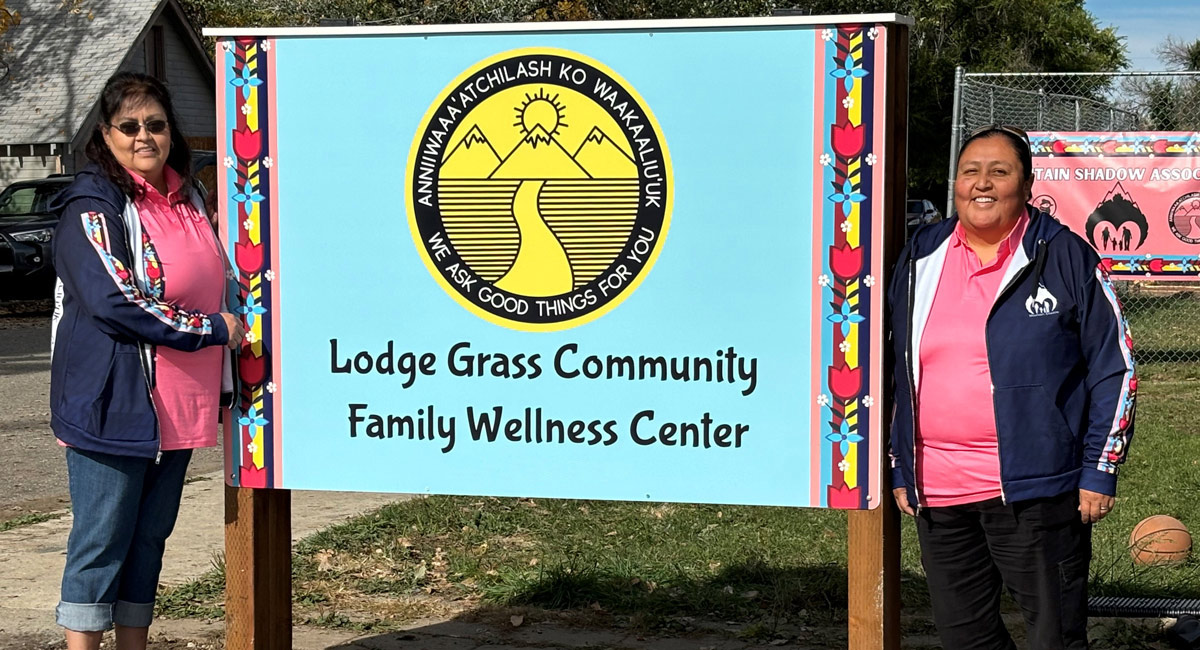
Recovery coaches Nina Hill (Apsáalooke) and Krystal Firebear (Apsáalooke) from the Family Wellness Center help heal and reunite Lodge Grass families. Photo courtesy of MSA.
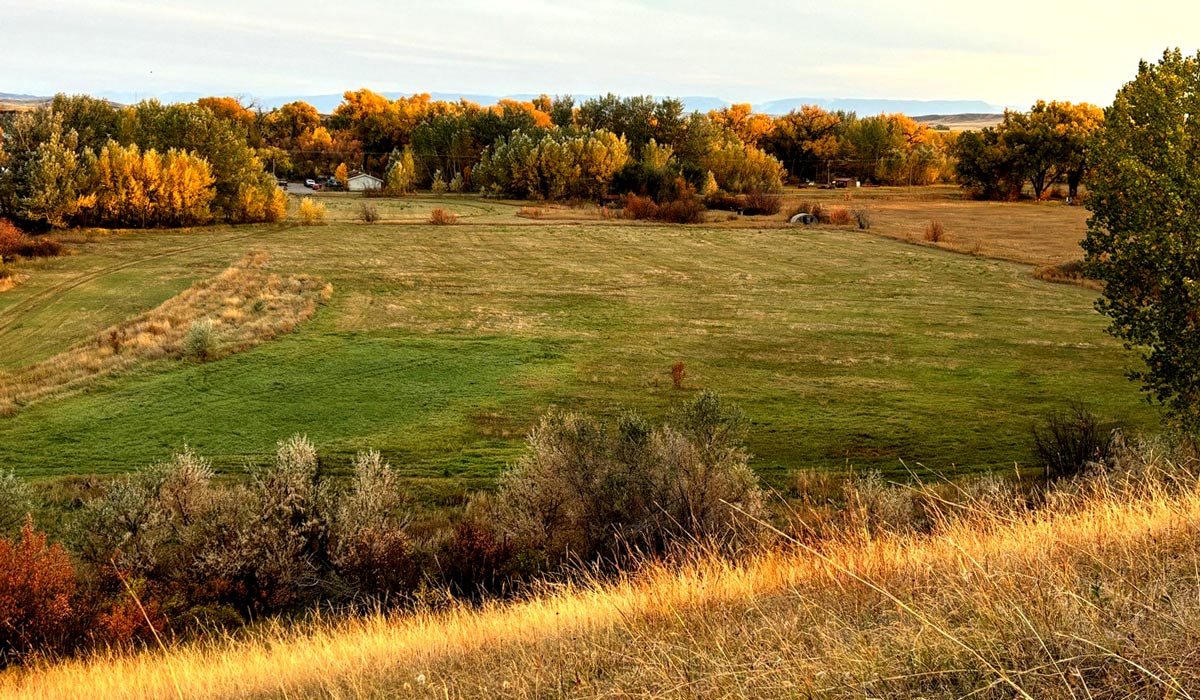
The 13-acre parcel of land in Lodge Grass where Kaala’s Village will be built. Photo courtesy of MSA.
The goal is for families to move out of Kaala’s Village with financial savings, a new home to go to, employable skills and education, and the ability to function as a healthy family unit. Leaving behind addiction and trauma, parents will teach their children patterns of wellness, self-empowerment, community engagement, and economic security.

